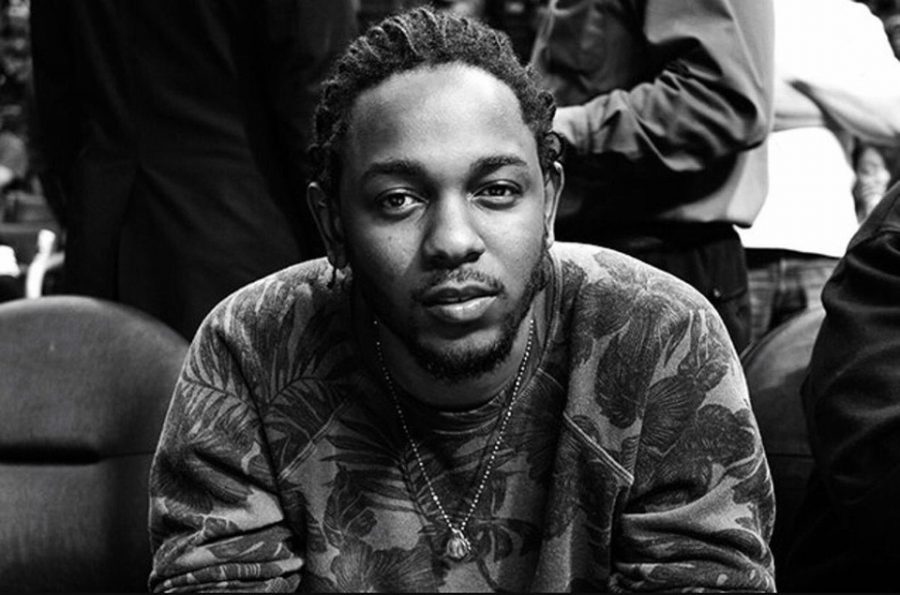Kendrick’s excommunication
Why Christians should listen to Kendrick Lamar.
September 13, 2017
Cruising down the road, windows down, speakers blaring “Backstreet Freestyle” where Kendrick Lamar raps about getting all the money and power so he can screw the world for 72 hours. Ironically, this was my first introduction to the music of Kendrick. For those unfamiliar with his work, Kendrick Lamar Duckworth is most likely the greatest Christian artist of our generation. The public’s perception of Kendrick varies, for some he is Kung Fu Kenny, to others he is just another hedonistic rapper, but in his own words from “Ab Soul’s Outro,” Kendrick is simply “a human mother-f—ing being.”
The lack of empathy
The question between secular and sacred always seems to remain at the forefront of a Christian’s mind. In an age where ideologies, media, music and all sorts of pop culture trends assault the viewer, it can be comforting for a person of strong convictions to categorize the world around them in order to remain pure. Determining between good and bad, truth or lies, Christian and non-Christian— their desire to follow Christ turns into a fearful defense mechanism of systematizing what surrounds them. The lack of empathy this mechanism can create, combined with our culture’s consumeristic mentality towards art, has created a space in Christian culture where we question or flat out deny the faith of others. We deny the faith of Kendrick.
While those who have trouble with his use of profane language have a legitimate concern to not listen to his music, using those same reasons for an insult on his artistry, Christian faith or character are mistaken. Out of context lyrics from songs like “Backstreet Freestyle” or “Swimming Pool’s” lyrics, “Pour up (Drank), head shot (Drank); Sit down (Drank), stand up (Drank)” causes one to automatically assume Kendrick is just another mindless rapper promoting a vapid lifestyle. This almost comical misunderstanding is a product of our culture’s unwillingness to think critically about the content we consume, and racial stereotypes that surround hip hop.
In reality Kendrick raps about the vices and problems he sees within himself and condemns them, advocating for positivity and a Christian lifestyle. Summarized in the wisdom from his father in the song “Real,” Kendrick writes “Real is responsibility. Real is taking care of your family. Real is God.” Kendrick always assumes the position of a sinner, as the least of these, and through his art he reaches millions of people who would never otherwise hear the gospel.
the model christian artist
Kendrick offers an introspective look into the life of a Christian man — struggling to be a good person in a world full of violence, racial discrimination and greed. Through his first album, “good kid, m.A.A.d city,” Kendrick raps about his growing up in Compton, and the gang violence and racial profiling that surrounded him. The narrative arc of the album is his conversion to Christ, culminating in the song “Sing about me, I’m dying of thirst,” in which a grandma leads them to Christ through the sinner’s prayer. In his second album “To Pimp a Butterfly,” Kendrick raps about battling fame and vices through his two main antagonists, Uncle Sam and Lucy, i.e. Lucifer. His rejection of both their temptations and acceptance as a leader to his community is best represented by “How Much a Dollar Costs.” Kendrick encounters God in a homeless man, and then tries to reclaim the N-word from its evil connotations and learns to love himself.
Throughout his career, Kendrick has assumed a humble posture in only speaking from his own experience, and realizing the extent to which he still deals with all of the vices he struggled with as a teenager. Kendrick is the model christian artist because of the deep honesty and integrity in which he approaches his music and the faith he integrates with it. Kendrick is not interested in preaching, but in giving a continual testimony of his life as he gives it to God.







